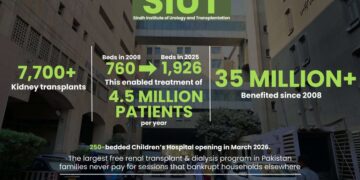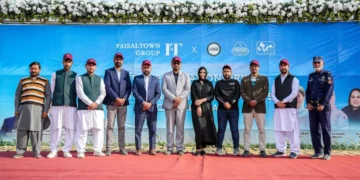Islamabad, 1st August 2024 — The Ministry of Law and Justice, in collaboration with the UK-Pakistan Serious Crime and Law Enforcement (UPSCALE) programme, organized a panel discussion to increase awareness of the Anti-Rape (Investigation and Trial), Act 2021.


The event featured experts with experience in implementing the Anti-Rape Act and dealing with cases of gender-based violence. The session was inaugurated by Federal Secretary for Law and Justice, Raja Naeem Akbar and chaired by Ayesha Raza Farooq, Chairperson of the Anti-Rape Special Committee. Notable experts from law enforcement and civil society including Ghulam Sarwar Nihung, Prosecutor General ICT, Dr. Inam Waheed Khan, DIG Police and Advisor UPSCALE, Barrister Usama Malik, Director, Directorate of Legal Education Pakistan, and Nida Aly, Executive Director of the Asma Jehangir Legal Aid Cell, provided perspectives on the challenges police, prosecution and lawyers face in ensuring justice for women in gender-based violence cases. Zainab Mustafa, member of the Special Committee, and Community Protection Advisor at UPSCALE concluded the plenary session by highlighting the government’s commitment to improving investigation and trial of gender-based violence crimes.


In his opening statement, the Secretary Law and Justice, Raja Naeem Akbar stated, “This seminar aims to create awareness on the rights of the citizens under the Anti-Rape Act, 2021. In future, I hope to see continued commitment from the Ministry of Law and Justice, the Special Committee, and all those present today towards creating a society where fundamental human rights are protected especially for the most vulnerable groups.”


In her keynote address Ayesha Raza Farooq acknowledged the significant new initiatives under the Act for combating sexual violence and ensuring justice for survivors. She emphasised the critical need for improving the response to rising instances of sexual violence in society and called for a holistic government approach to ensure implementation of the Anti-Rape Act. She called for the creation of “a society where justice prevails, and survivors of sexual violence receive the support and protection they need.”
Community Protection Advisor (UPSCALE), Omar Maniar set the context for the discussion by summarising the new framework for survivors of sexual violence including anti-rape crisis cells, specialized investigation units, designated prosecutors, creation of special courts and the creation of the national sex offenders register which will allow police to monitor convicted offenders and reduce reoffending. Despite these legal provisions, data collected by the Ministry of Law and Justice from across Pakistan showed that while these structures have been created, there is a critical need to ensure that they are used effectively. Anti-Rape Crisis Cells are available in most districts however police have not begun to refer cases as required by the law. Similarly, victim protection measures are rarely used and as a result, survivors of sexual violence often withdraw from lengthy trials leading to a conviction rate of just 4.5% across the country.
The panel discussed challenges faced by survivors in seeking justice in gender-based violence cases. Several key issues were discussed including low referral of cases to crisis cells, low conviction rates, acquittals due to resiling of witnesses, delays in trials, and repeat offending by convicts. Specialised structures and mechanisms provided under the Anti-Rape Act can comprehensively address these issues but effective implementation remains a challenge. For example, the Act passed in 2021 calls for the establishment national sex offender’s register, and rules were notified in September 2023, however, the register is still not functional.
The event concluded with an acknowledgement of the collaborative effort required to implement the Anti-Rape Act 2021 effectively and reaffirmed the commitment of all stakeholders to fostering a safer and more just society.

















